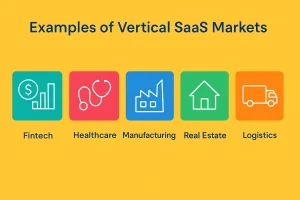
For B2B salespeople, deep relationships with business clients are a foundational piece for improving client experience, instilling customer loyalty, and achieving revenue expansion.
Building a relationship requires sophisticated sales skills, as Jay Fuchs, the editor of the HubSpot sales blog recently wrote: ‘Think long term and balance the question-answers with insights, write in a way that clearly communicates knowledgeable information, foster genuine conversations.’
Make the Customer the Focus
The best advanced sales strategies involve emphasising client needs and then acting on them. This creates a bond of trust and reassurance between the agent and the client, while simultaneously illustrating what effective solutions might encompass.
Seasoned agents focus on listening and giving clients the most effective response to their concerns.
Communication between B2B representatives is key to ensure good working relationship. Sales people can support communication between the B2B representatives and their clients by using CRM tools available such as digital calendars and appointment scheduling. Sales people can organize meeting times with their clients at convenient hours and that still allows for more efficient utilisation of the client’s work time. Efforts in communication will thus translate to improved customer experience and a strengthened bond between agents and their clients leading to brand loyalty and a sales increase.
Give the Client Power
In order to better utilize their sales agent skills, agents should ‘give control’ to the clients in interpersonal interactions, including enabling their ability to ask questions and helping the clients fully understand the product or service value. They also should develop the ability to ‘predict clients’ possible objections’ ahead of their sales interactions and simultaneously handle the objections raised by the clients.
It requires sales agents to spend time and effort in learning about their prospective customers’ pain points for operating and conducting business – learning about conditions or challenges each prospect might have to overcome. It could involve following industry trade publications, reading public financial reports, using background services to study each company’s leadership, or any of a dozen other practices. But once sales agents understand what pains each prospective customer faces, they can use that understanding to devise a compelling value proposition for each potential customer.
But this approach works only if agents do not come across as pushy or intrusive during client meetings. In fact, with sales training programmes, agents are taught how to be assertive rather than pushy – very useful in building valuable relationships, which in turn helps them to meet quota every month.
Negotiate the Deal
When we are B2B salespeople, we must think ‘win-win’. We need to learn what is important to the client, find ways to satisfy that without compromising, and reach a mutually satisfactory outcome.
If you apply effective communication strategies in negotiation, your chances of arriving at win-win agreements will greatly improve. They include active listening, clear and concise messaging, tailor-made communication channels, images as conveyors of information, empathy, emotional intelligence, and effective questioning.
Using value instead of price also makes negotiations more productive by illustrating your familiarity with the client’s business by underscoring benefits you can provide. Moreover, learning when to walk away from talks – before spending unnecessary time and money in a flawed deal – is also invaluable for clinching a sale. Finally, there’s one last thing to know – or rather, one last thing to do – when it comes to pitching your solution and closing the deal. When the time comes to make that hard sale, the research reveals that recapping key points and reconfirming deals is helpful, as are report-backs on execution. Documenting your agreements in full (including win/win scenarios for all parties involved), discussing any associated risks and being reachable at all times help smoothen out the process of closing a deal, as well as planting the seeds for more business relationships down the road.
Follow Up
Whenever a form is filled on your site, or a potential customer questions anything, they need responses right away, because studies have shown that 78 per cent of customers will purchase goods from companies that respond quickly.
Add those personal touches to your messages to prospects, and connect on a deeper level – is there something we’re both following that you can bring up? How have you been since we last corresponded – that’ll make follow-ups sound less template-y and more considered.
However, it is important to be respectful and not come on too strong and stalky or you will turn off the prospect. Contact them only after they have shown repeated signs of interest, otherwise you will bore them to death and turn them off to what you have to offer. CRM software with automated follow-up email sequences, text auto-scheduling and online meeting booking tools will keep prospects fresh in their minds while helping you close them faster than you could on your own. We offer more advanced customer relationship management courses from industry leaders on our Continu online learning platform for more client engagement that will help you stand out from the crowd.







